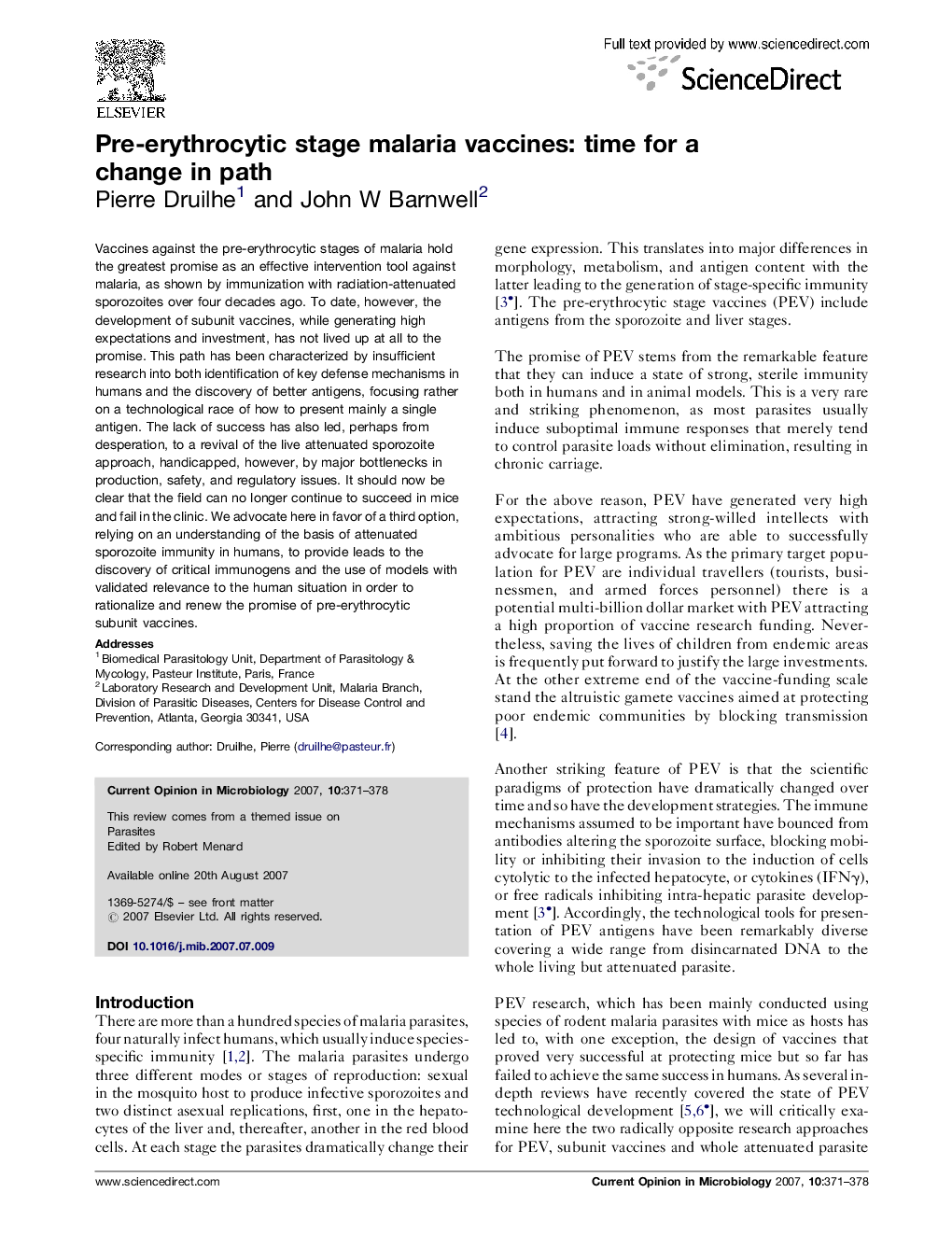| Article ID | Journal | Published Year | Pages | File Type |
|---|---|---|---|---|
| 3399653 | Current Opinion in Microbiology | 2007 | 8 Pages |
Abstract
Vaccines against the pre-erythrocytic stages of malaria hold the greatest promise as an effective intervention tool against malaria, as shown by immunization with radiation-attenuated sporozoites over four decades ago. To date, however, the development of subunit vaccines, while generating high expectations and investment, has not lived up at all to the promise. This path has been characterized by insufficient research into both identification of key defense mechanisms in humans and the discovery of better antigens, focusing rather on a technological race of how to present mainly a single antigen. The lack of success has also led, perhaps from desperation, to a revival of the live attenuated sporozoite approach, handicapped, however, by major bottlenecks in production, safety, and regulatory issues. It should now be clear that the field can no longer continue to succeed in mice and fail in the clinic. We advocate here in favor of a third option, relying on an understanding of the basis of attenuated sporozoite immunity in humans, to provide leads to the discovery of critical immunogens and the use of models with validated relevance to the human situation in order to rationalize and renew the promise of pre-erythrocytic subunit vaccines.
Related Topics
Life Sciences
Immunology and Microbiology
Microbiology
Authors
Pierre Druilhe, John W Barnwell,
